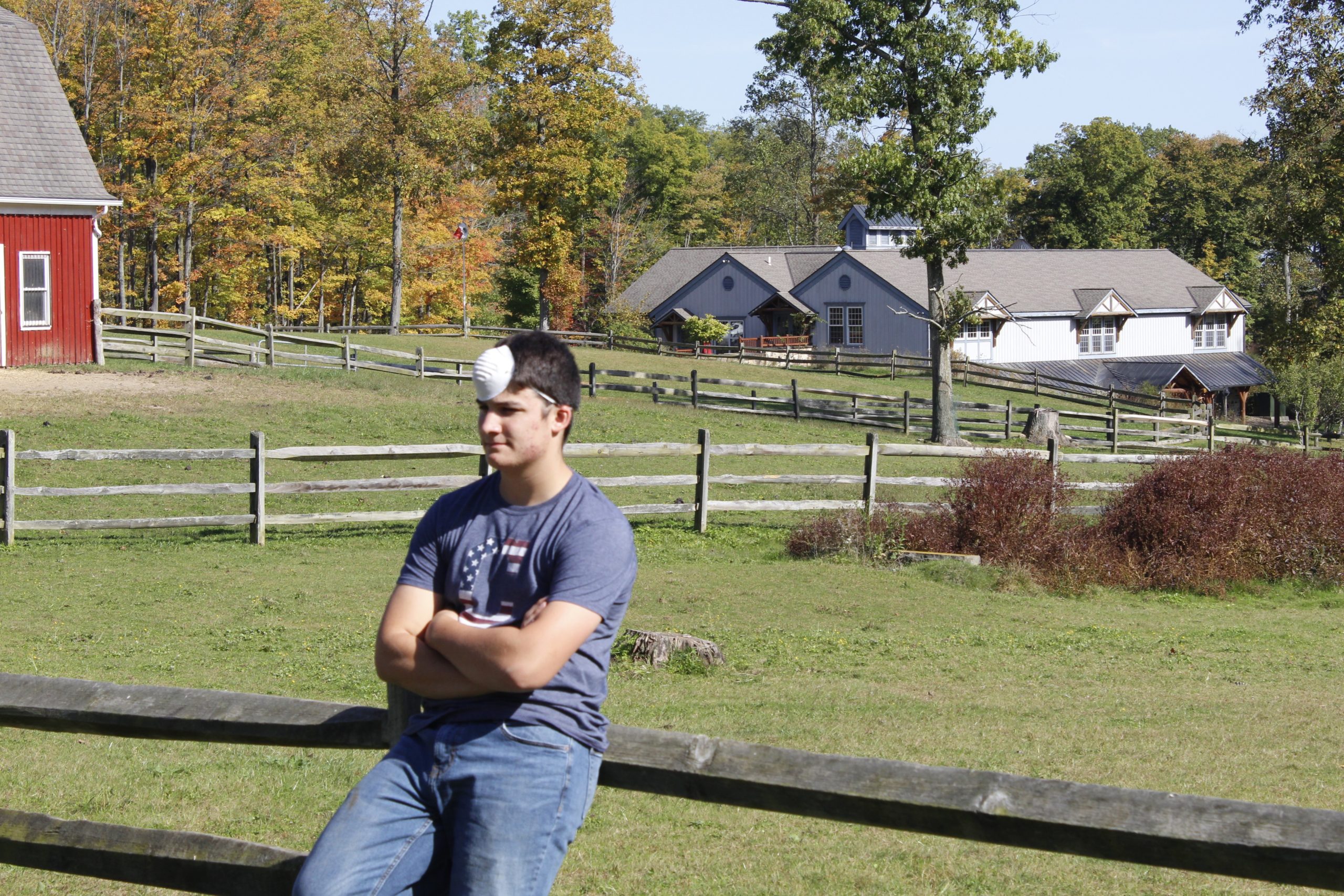What Do Adolescents Need Right Now?
By Laurie Ewert-Krocker, Director, International Montessori Training Institute, former Hershey staff member, Hershey parent and grandparent
Adolescents need us to remember that they are fundamentally human beings who want to be respected and treated with the same level of dignity with which we treat other adults.
Montessori education recognizes that we all share the same human tendencies and basic needs throughout our lives—and that as children grow through stages of development, particular needs and characteristics are highlighted and need support to build the potential of adulthood.
In a time of instability, it’s important to remember what’s fundamental for all human beings—and then consider particularly what is important to teens right now.
The need to Orient: We are all experiencing new and changing schedules as well as significantly restricted environments. Adolescents suddenly have limited access to peers and adults other than parents and family members. They will GRIEVE this loss on some level. Not having their peers and their “tribe” close by will be impactful for them on a social/emotional level. Sensitivity to that loss is paramount. They are also going to experience different kinds of expectations from everyone than is usual—from teachers, from parents, from friends. And those expectations are likely to change as everyone follows a learning curve and responds to unpredictable events. Expectations of them might also go unarticulated or ineffectively communicated. They need the people in their lives to help them orient to the changing conditions of their lives right now. Clarity, patience, and kind honesty need to rule the day.
The need for Order: We all need enough order and some level of predictability to stay healthy and functional. Everyday chaos is overwhelming. Routines will be helpful—just as long as the routine considers the adolescent’s needs as well as everyone else’s. Their need for order will be more internal than external, while the adults might cling to external order as an anchor. Give them some space to own their own disorder (like in their rooms) and express where order is helpful to them. Lovingly explain how order helps each person in the family to feel safe and secure—but perhaps in different ways. Offer to help them keep order from time to time—rather than demanding it.
One idea: Have regular family meetings to check-in with everyone (even if there are only 2 of you!) What’s going well? What’s challenging? What are everyone’s current needs? How can we help each other? How can we paint a picture of a hopeful future with each other? How can we share some quality time together to be fun, joyful, playful? What will make us laugh?
The need to Imagine positive outcomes: Adolescents need a certain level of consistency and assurance from adults about the future; we will get through this! Help them imagine what that will look and feel like. Invite them to consider positive changes for the future based on what they are experiencing and perceiving. They need messages of hope and regular assurances that their needs are being considered and attended to as best the family can. But beware—they can tell if you are lying—so this means incorporating hope and faith in the future into your own outlook.
The need for Work: “Work” is what we all do to contribute to the sustaining of our lives and our communities. Humans work to adapt to the environment and improve life. Work gives us purpose and meaning. For an adolescent, work needs to feel relevant and valuable—not just something to keep them “busy” or “out of people’s hair.” Work needs to feel either like a valuable step toward their future or like a contribution to the community’s needs. Their school work should feel like it has a purpose in their lives. The work they do for the family needs to feel like a contribution. Can there be a family rotation of chores, menu-planning, cooking, etc. that includes the adolescent—but also considers that their timeline for getting things done might be a little different than adults? (If they don’t get something done until later in the day or week than you would like—be patient and let the timeline be theirs, if possible.)
Is there community service work they can do in their families or for their community while still maintaining social distancing? Can they write letters to elderly relatives? Can they make babysitting kits for families with young children? Can they record story-telling or reading aloud sessions online for the children of busy working-at-home parents? Can they make board games and mail them to children of family friends? Can they sew protective masks? Can they put together simple building kits for children? Use some of their own Legos to create unique construction kits? (Disinfect and mail or drop off outside the door?) Can they put your family budget on a spreadsheet to track expenses? Organize music playlists for people? Can they work in the yard or take on repair or maintenance projects like painting or building?
The need for Communication: Communication may be humanity’s number one need right now on the planet. Adolescents need LOTS of communication opportunities—lots of opportunities to share what THEY are thinking and feeling
- Communication from parents: regular, short meetings and check-ins that ask them how THEY are doing and feeling (not just TELLING what the adults need and think); honest, clear information about what is happening in the world (but not so much that everyone is swirling around in the worst-case scenarios); lots of “I” statements from adults: “I think this is what is happening;” “I think this is what we need; but what do YOU think?”
- Task and responsibility charts for the family—where everyone gets to choose several tasks from a list and they commit to a time frame for getting them done; a sense that everyone is partnering in the situation and no one is shouldering the labor for everyone else.
- Communication from peers; peers are an adolescent’s primary need—so making sure they have access to friends and classmates is crucial. Seeing their peers face-to-face online regularly would be helpful. Relaxing the phone and tech rules a bit for now makes sense—but not at night when sleep is still the primary mental and physical health requirement for adolescents.
- Examine your own expectations for your adolescents—what are you expecting them to take on (like care of siblings or housework)? Has that been articulated? Have they been diplomatically asked and negotiated with? Do you know how they feel about that? Adolescents are often very willing and able to step up into adult roles as needed—but they need to feel treated with respect, and they need to feel their perspective is considered.
The need for Self-Expression: Adolescence is a time of life focused on identity formation and internal processing. Self-expression happens through open dialogue with others but also through the arts and physical activity. Being restricted from playing sports, going to music or dance lessons is going to be painful. How can they continue to be involved in their chosen forms of self-expression? What space and materials might they need to set up a studio or work-out space at home? Are there online programs that can keep them motivated? (Don’t be surprised if they feel the need to have a digital connection with friends WHILE they engage in self-expression activities.)
One of the insights of a Montessori approach to education is that whatever a child/adolescent might be doing in the moment (that may look questionable to our adult minds), there may be a very important human drive or developmental reason behind it. We try to stop ourselves from reacting, observe and consider what that need might be, and respond by supporting. Knowing that our Human Tendencies are always an active force in our lives—but may look different at different times—helps us to consider our own humanity and the humanity of those around us. We will all be compelled to orient, order, work, explore, communicate, abstract, imagine, self-express in the coming weeks and months—but those tendencies will look different for each of us. Our everyday work will not only be to remain consistent, calm, and flexible, but to work at truly SEEING each other and LISTENING to each other.



Thank you, sharing. A touchpoint from the Farm School we so loved and feel so fortunate our children had it and Laurie, Jim and others there to shepherd them.